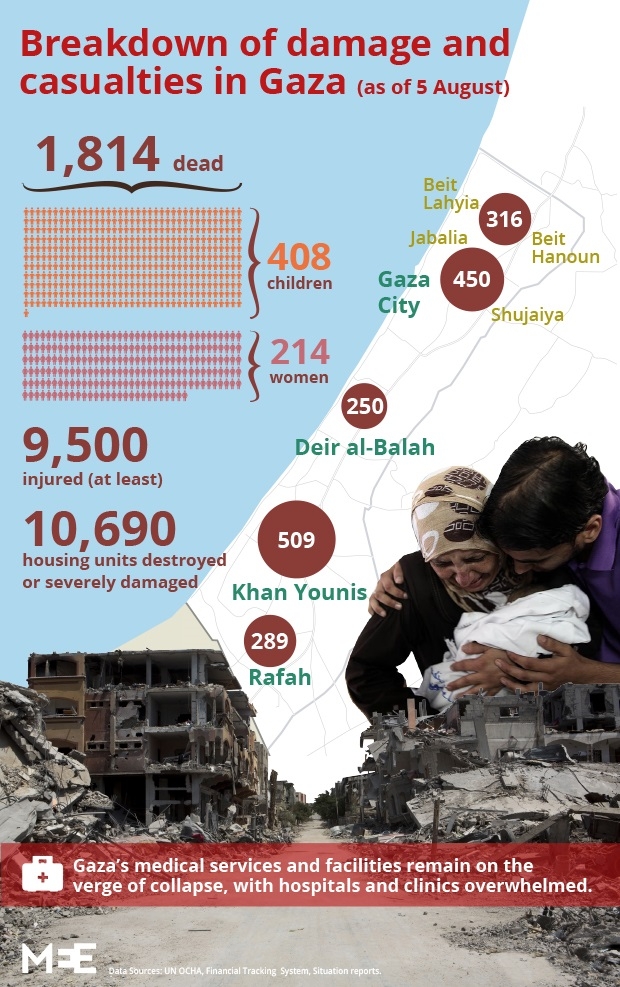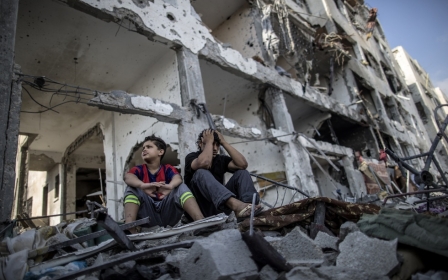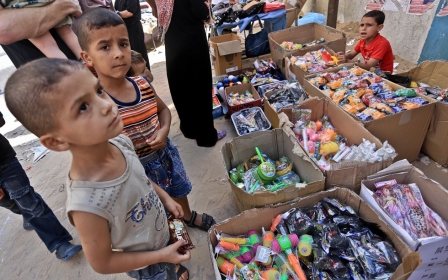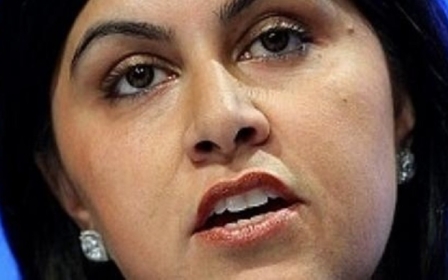Life returns to Gaza amidst shock at scale of damage
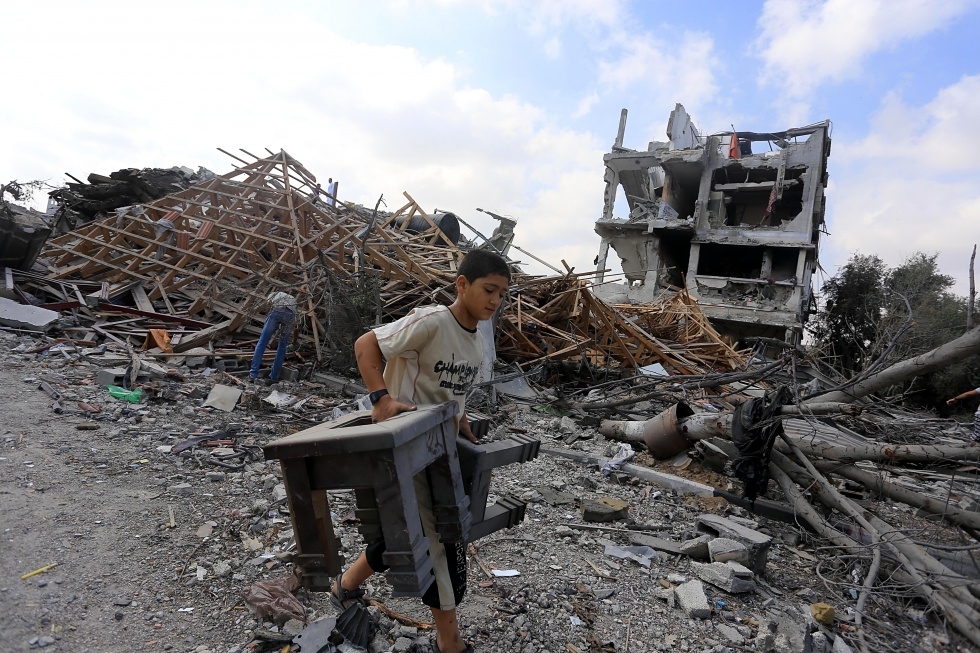
Life in the battered Gaza Strip began returning to normal Wednesday as a ceasefire held for a second day and Egyptian mediators engaged in shuttle diplomacy to extend the truce.
Shops, banks and markets reopened around the devastated enclave where residents seemed more confident that the three-day ceasefire, which began Tuesday, would hold after a month of fighting killed 1,875 Palestinians (mainly civilians) and 67 on the Israeli side (mainly soldiers).
With life returning to the streets in Gaza, the Arab League said a delegation of foreign ministers planned to make a solidarity visit to the impoverished enclave which would also assess the vast reconstruction needs.
"An Arab ministerial delegation will go to Gaza soon in solidarity," Arab League chief Nabil al-Arabi told reporters in Cairo, without giving a date.
The delegation, which is likely to expand, so far includes top diplomats from Egypt, Kuwait, Jordan and Morocco.
Palestinian officials in the West Bank have estimated the total damage from the 29-day war as high as $6 bn (4.5 bn euros).
Nearly half a million people were displaced by Israeli bombardment, and many are still sheltering in schools after their homes were flattened in the offensive.
Across Gaza, people began trying to patch up their battered homes, as the emergency services cleared rubble and searched for bodies in worst-hit areas, among them Tuffah and Shejaiya near Gaza City, Khuzaa and an area east of Rafah on the southern border with Egypt.
Small businesses reopened for the first time in nearly a month and fisherman put out to sea after weeks stranded on land, an AFP correspondent said.
On the streets of Rafah, people packed into local markets and policeman could be seen trying to manage the traffic.
Many residents were angry as they examined the extent of damage to their houses.
"Look at my house, it is totally smashed. How can my children live here?" asked Mussa Abu al-Rus whose house had been taken over by Israeli soldiers.
"I hope the truce will last and peace will come, but I don't trust them."
'We won't yield'
In Cairo, Egyptian officials mediating talks for a durable truce in Gaza met a Palestinian delegation to relay terms laid down by an Israeli team overnight, Palestinian officials said.
But they are likely to face an uphill battle with both sides insisting on conflicting demands.
Palestinian officials have said they will respond to the Israeli terms through Egyptian intelligence officials, although a senior Hamas official has already rejected an Israeli demand for the disarming of Gaza fighters.
Meanwhile, international Middle East peace envoy Tony Blair and the UN peace process coordinator for the region, Robert Serry, were to hold talks with Egyptian officials.
And Washington was still undecided exactly how it would join the mediation.
Ismail Haniya, Hamas's top Gaza-based official, was defiant ahead of the talks, saying the Palestinian side would "not yield on any of our demands."
And Izzat al-Rishq, another senior official within the Islamist group's exiled leadership, ruled out any move to disarm Gaza.
The Palestinians have insisted Israel end its eight-year blockade of Gaza and free scores of Hamas prisoners.
Compromise needed
In a BBC interview, US Secretary of State John Kerry said there would have to be compromise on both sides in order to obtain a permanent ceasefire.
"There has to be a giving on both sides with respect to these issues," he said, while insisting that "critical underlying longer-term issues" be addressed.
The Israeli army says Hamas fired some 3,300 rockets at Israel during the conflict, that troops destroyed just over 3,000 others and that it still had around 3,000 left which would have to be "dealt with."
The current truce is the longest period of calm since Israel began its military campaign on July 8 in a conflict which Gaza medics say killed at least 1,875 people, among them 430 children. Another 9,567 people were wounded in the violence.
The truce is due to expire at 0500 GMT on Friday morning with international efforts focused on finding a way to extend it beyond the initial 72 hours.
But Israel's military chief of staff Lieutenant General Benny Gantz said Israel troops were ready for whatever came next.
"If there are incidents, we know how to respond to them... Our forces... are ready for whatever comes next."
New MEE newsletter: Jerusalem Dispatch
Sign up to get the latest insights and analysis on Israel-Palestine, alongside Turkey Unpacked and other MEE newsletters
Middle East Eye delivers independent and unrivalled coverage and analysis of the Middle East, North Africa and beyond. To learn more about republishing this content and the associated fees, please fill out this form. More about MEE can be found here.


